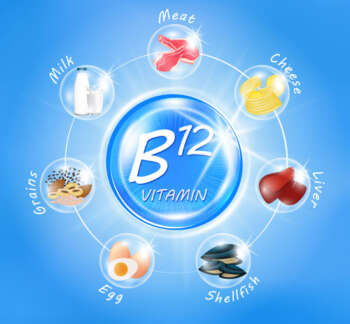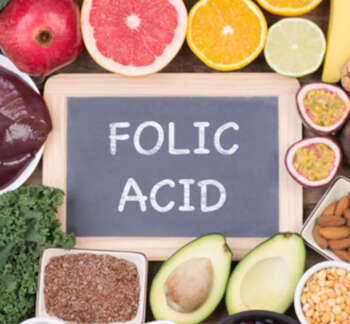Vitamin B 12
Cobalamin is a member of the B-group of vitamins and a co-factor for metabolic processes like nucleic acid synthesis, amino acid synthesis, and the citric acid cycle. Mammals are unable to synthesize cobalamin and therefore rely on adequate food intake. Cobalamin absorption is a complex process in the stomach, duodenum, and ileum, requiring a functional exocrine pancreas. Thus, a great number of gastrointestinal diseases like chronic enteropathies, intestinal lymphoma, or exocrine pancreatic insufficiency can lead to hypocobalaminemia. Certain dog breeds like Giant Schnauzer, Border Collie, Australian Shepherd Dog, and Beagle can have a primary, hereditary cobalamin deficiency (Imerslund-Gräsbeck syndrome). Low B12 is usually secondary to a medical issue such as exocrine pancreatic insufficiency (EPI) or a small intestine disorder.


Folic Acid
Folate is a water-soluble B vitamin that is naturally present in some foods, added to others, and available as a dietary supplement. Folate, formerly known as folacin and sometimes vitamin B9, is the generic term for naturally occurring food folates. Folic acid deficiencies usually occur due to small intestinal disease or pancreatic insufficiency but can also occur due to chronic use of certain medications such as trimethoprim. Folic acid is necessary for normal metabolic functions such as DNA synthesis and red blood cell production.
Vitamin D
There is emerging interest in linking vitamin D status to physiological health and disease states in the dog, as evidenced by the recent increase in publications in connection with reduced Vit D levels in animal cancers.
Vit D is essential for Bone metabolism and immune regulation with better cardiovascular health.

